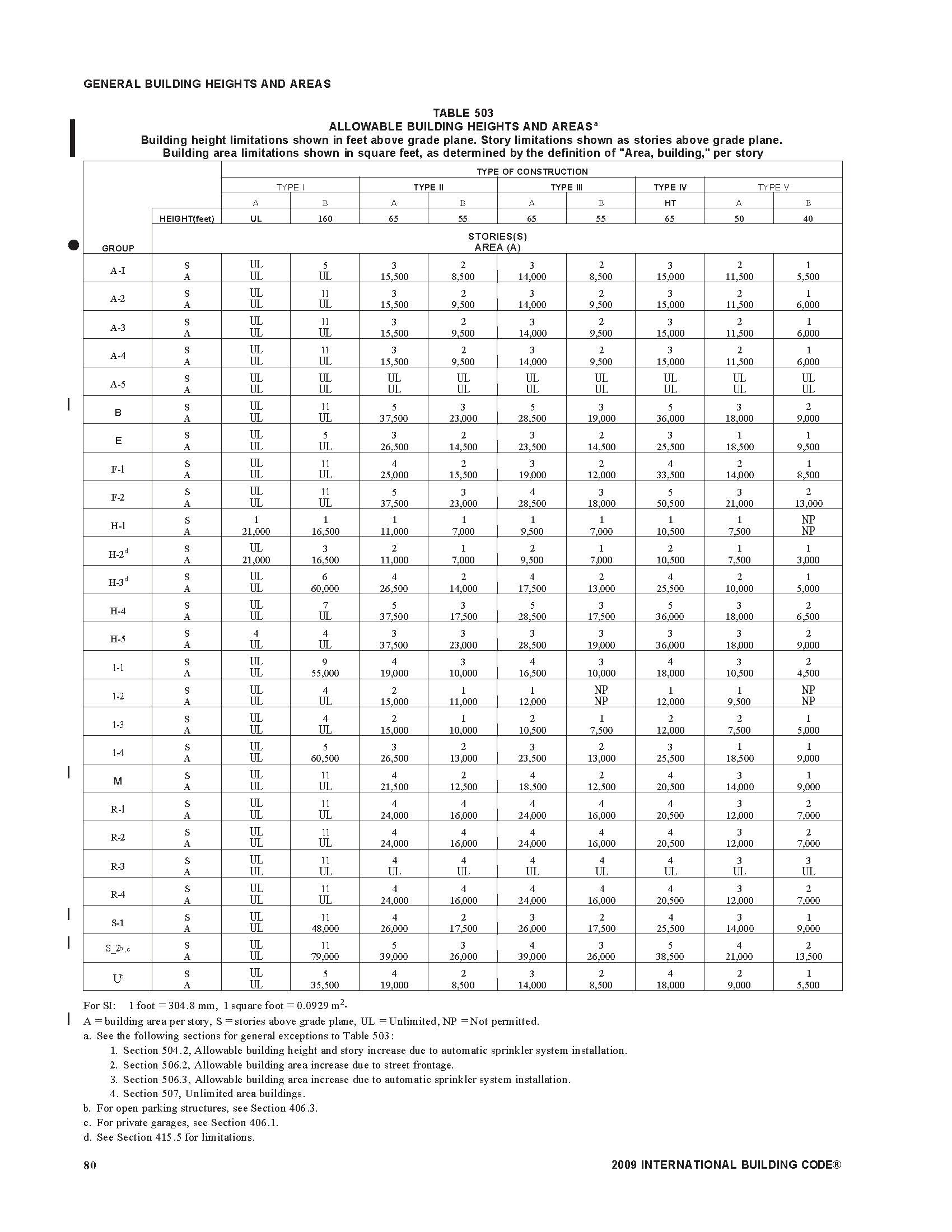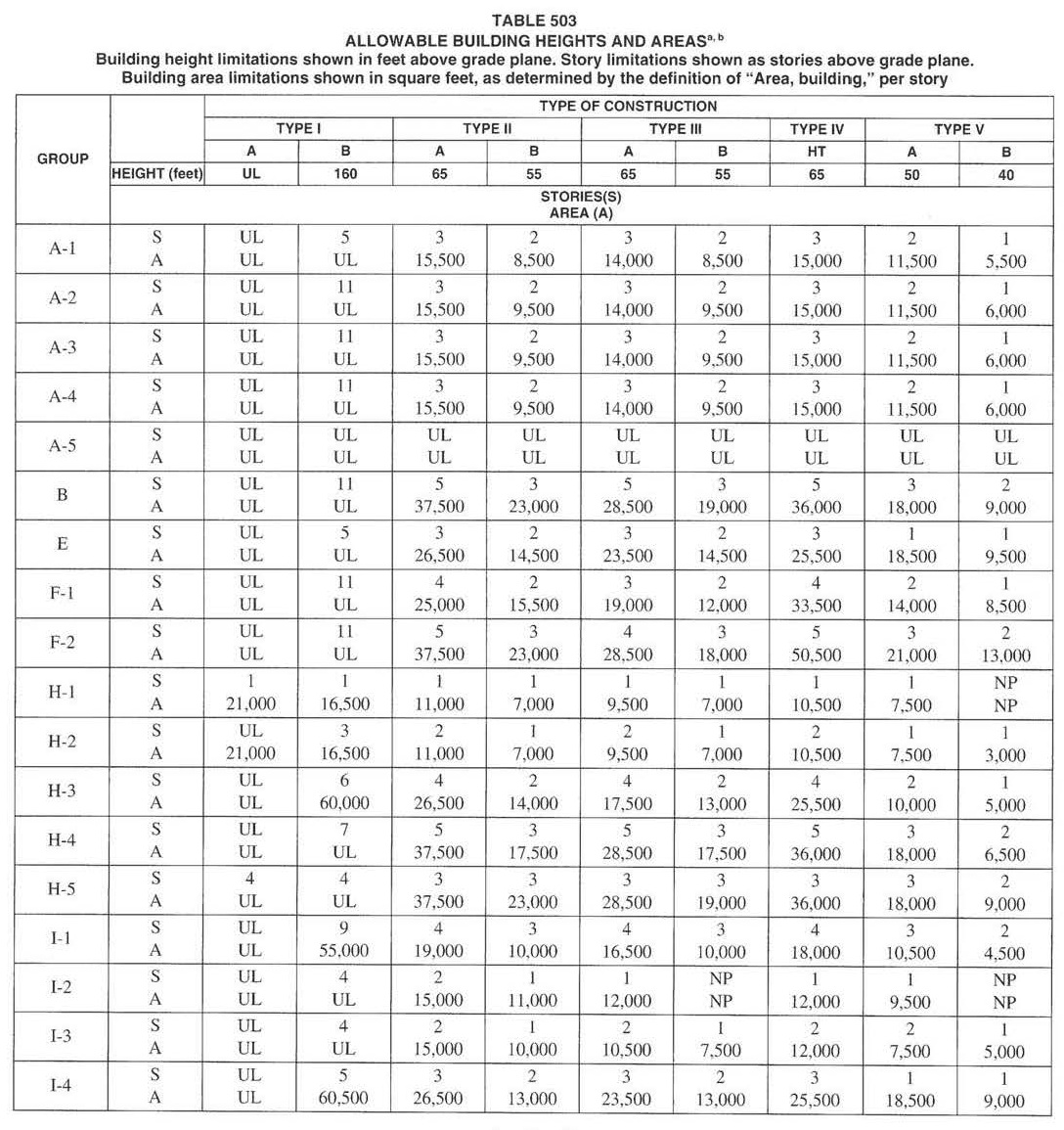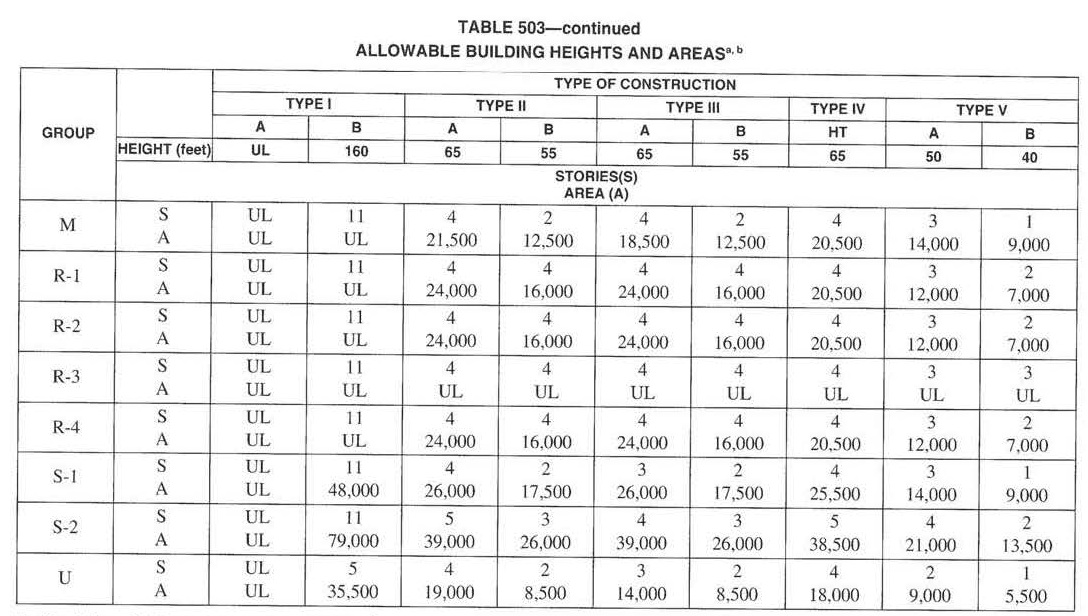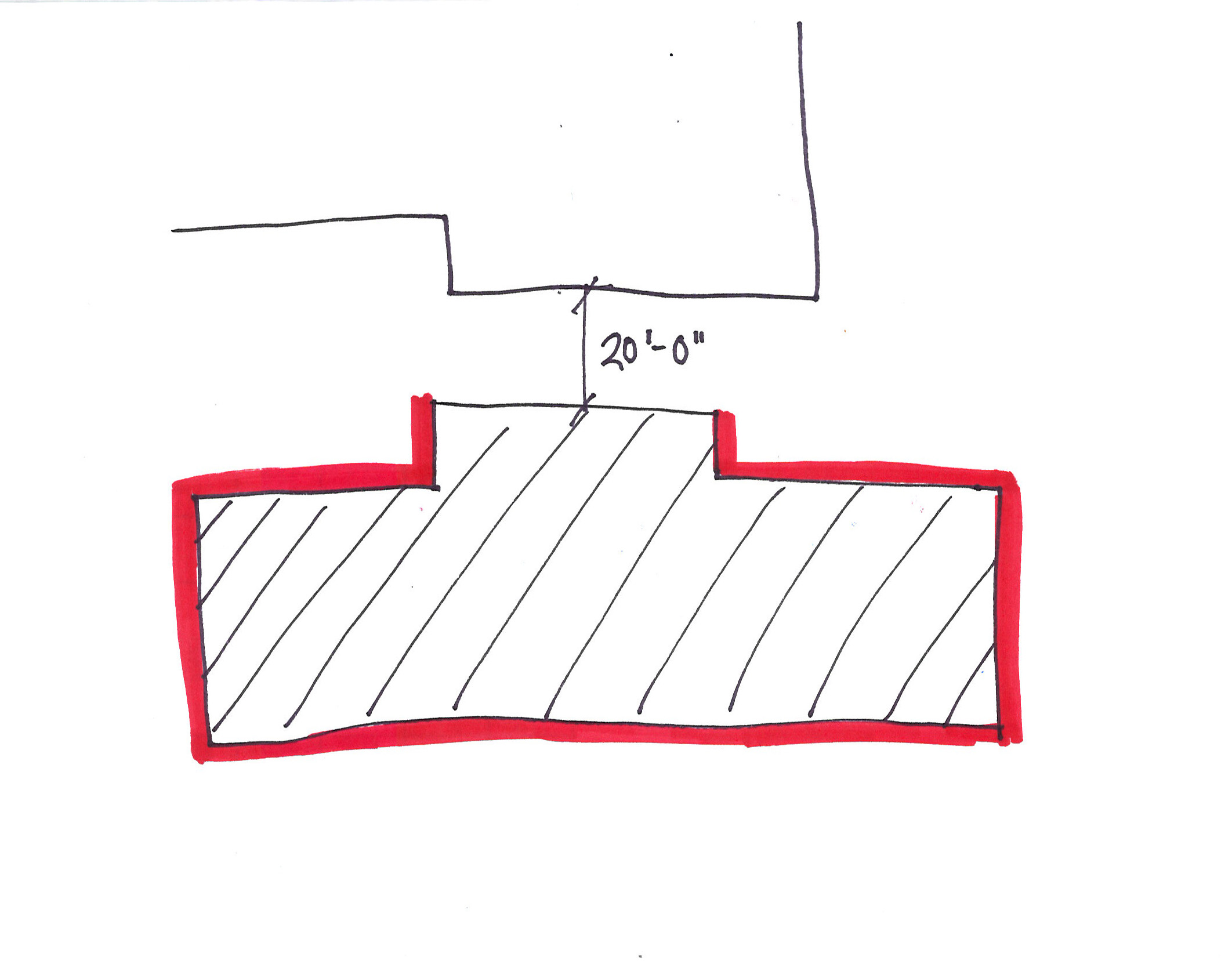Aa = {At + [At X If] + [At x Is]}, where
Aa = Allowable area per story
At = Area from Table 503 (above)
If = Area increase factor due to frontage
Is = Area increase factor due to sprinklers
Shortcut:
Let’s break this formula into two sections:
1. [At X If] Frontage
2. [At x Is] Sprinklers
In Section 1, if there is a minimum of 30 feet around the entire perimeter of the building, then At X If = .75At
If not, then we can find the frontage factor by following this equation:
If = [length of the perimeter w/ min 30 feet around bldg / total perimeter length] – 0.25
In this example, If = [length in red / whole length] -.25 = .63
In Section 2, if the building is one-story and is sprinklered, then At x Is = 3At . If the building is multi-story and is sprinklered, then At x Is = 2At . If the building is not sprinklered, then At x Is = 1At .
Now we combine the 2 sections:
Example: Our building is two stories, sprinklered, and has a minimum of 30ft around the entire building. The construction type is IIB and the occupancy type is A-1. What is our allowable area?
Answer: Aa = 2.75At, where At = 8500, so Aa = 23,375 S.F.
 Allowable Area and Height
Allowable Area and Height





